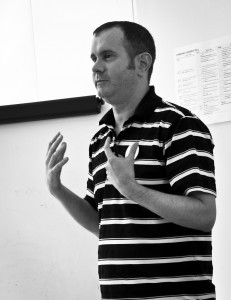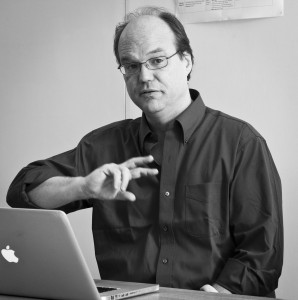In October, the Platypus Review published it's fiftieth issue. In celebration of this landmark occasion, at the issue No. 50 release party held in New York City on November 15, 2012, an international video conference with the members of the current and past editorial staff of the Platypus Review was held, including speakers involved with the Platypus Review from New York City and Chicago, USA, London, UK, Thessaloniki, Greece, Maastricht, the Netherlands, Frankfurt, Germany, and Graz, Austria.
Join Platypus for a movie screening at Goldsmiths: //Thursday 8th Nov RHB 114 7pm How is Hollywood’s interpretation of the financial crisis of 2008 useful or problematic? What other interpretations are there?
Live broadcast: www.livestream.com/platypus1917
Saturday, December 17, 2011
9AM U.S./Canada PST / 10AM MST / 11AM CST / 12PM EST;
and 17:00 London / 18:00 Frankfurt and Berlin /
19:00 Thessaloniki / 22:30 Delhi / 02:00 Seoul
If you are in Chicago:
Saturday, 11am | 17 December 2011 |School of the Art Institute of Chicago, 112 S. Michigan Ave. room 919
Please join Platypus for a brief introduction to and discussion about the relevance of Lenin today, in anticipation of our Winter-Spring 2012 primary Marxist reading group, on the history of revolutionary Marxism, centered on the writings of Lenin, Luxemburg, Trotsky, and Adorno.
The Encyclopedia Britannica's entry on Lenin states that,
"If the Bolshevik Revolution is -- as some people have called it -- the most significant political event of the 20th century, then Lenin must for good or ill be considered the century's most significant political leader. Not only in the scholarly circles of the former Soviet Union, but even among many non-Communist scholars, he has been regarded as both the greatest revolutionary leader and revolutionary statesman in history, as well as the greatest revolutionary thinker since Marx."
Lenin is the most controversial figure in the history of Marxism, and perhaps one of the most controversial figures in all of history. As such, he is an impossible figure for sober consideration, without polemic. Nevertheless, it has become impossible, also, after Lenin, to consider Marxism without reference to him. Broadly, Marxism is divided into avowedly "Leninist" and "anti-Leninist" tendencies. In what ways was Lenin either an advance or a calamity for Marxism? But there is another way of approaching Lenin, which is as an expression of the historical crisis of Marxism. In other words, Lenin as a historical figure is unavoidably significant as manifesting a crisis of Marxism. The question is how Lenin provided the basis for advancing that crisis, how the polarization around Lenin could provide the basis for advancing the potential transformation of Marxism, in terms of resolving certain problems.
The Frankfurt School Critical Theorist Theodor Adorno, in his 1966 book Negative Dialectics, wrote of the degeneration of Marxism due to "dogmatization and thought-taboos." There is no other figure in the history of Marxism who has been subject to such "dogmatization and thought-taboos" as much as Lenin.
It is important to note as well that Adorno himself sought to remain, as he put it, "faithful to Marx, Engels and Lenin, while keeping up with culture at its most advanced," to which his colleague Max Horkheimer replied, simply, "Who would not subscribe to that?"
Today, such a proposition seems especially implausible, in many ways. Yet perhaps the memory of Lenin haunts us still, however obscurely.
The discussion will be broadcast live on the web. Additionally, a recording will be made available after the event.
Recommended background readings:
"1917"
http://platypus1917.org/2009/11/18/the-decline-of-the-left-in-the-20th-century-1917/
"Lenin's liberalism"
http://platypus1917.org/2011/06/01/lenin%E2%80%99s-liberalism/
"Lenin's politics"
http://platypus1917.org/2011/09/25/lenins-politics/
Communist University took place August 13-20, 2011
Goldsmiths, University of London
Raymont Hall
63 Wickham Road
London SE4 1LX
Platypus Affiliated Society members presented as follows:
Tuesday, August 16, 4:45PM-7PM
• Chris Cutrone, "Capital in history: Marxism and the modern philosophy of freedom"Â
audio recording
Marx on "becoming" [PDF handout]
Friday, August 19, 10AM-12:30PM
• Spencer Leonard, "Marx's critique of political economy: proletarian socialism continuing the bourgeois revolution?"
audio recording
Recommended background readings:
Cutrone, "Capital in history: the need for a Marxian philosophy of history of the Left" (2008)
Cutrone, "The Marxist hypothesis: a response to Alain Badiou's 'communist hypothesis'" (2010)
Background reading compiled from recent engagements between the CPGB and Platypus can be found at: /wp-content/uploads/2011/08/macnairmike_platypuscritique_may-august2011_081111.pdf or /wp-content/uploads/2011/08/cpgbcontraplatypus081111.pdf
Facebook invitation at:
http://www.facebook.com/event.php?eid=121122331312799



